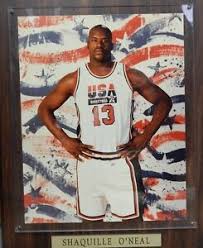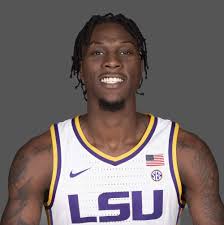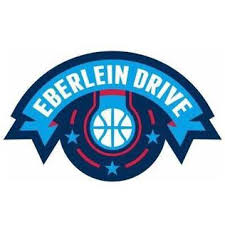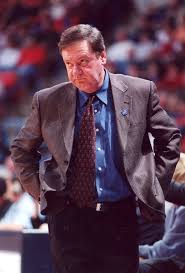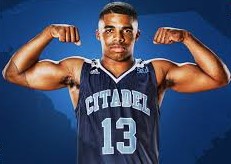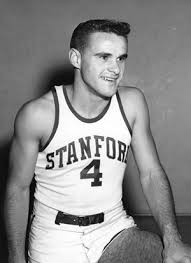The NBA Finals date back to 1947 (when they were known as the Basketball Association of America Finals) and the very 1st NCAA tourney was held in 1939. Olympic basketball competition is even older: it debuted as a demonstration event in 1904 and the men’s version became a medal sport in 1936, with the women finally getting their chance to go for the gold in 1976. The United States has dominated Olympic basketball competition from the start: the men have won 15 gold medals in the 18 tournaments they have participated in during the past 84 years, while the women have won 8 gold medals in the 10 tournaments in which they have competed during the past 44 years. Those of you who were looking forward to the 2020 Olympics opening ceremonies in Tokyo on July 24, 2020 will have to wait an extra 364 days, as the coronavirus caused a postponement until July 23, 2021. Due to the absence of college basketball since mid-March, HoopsHD’s Jon Teitel decided to fill the void by trying to interview as many prior Olympic players/coaches as possible so that you have something to read this summer while not watching the Summer Games. We continue our coverage by chatting with Joe Caldwell about beating John Wooden in the 1963 NCAA tourney and winning a gold medal in 1964. Today marks the 2nd anniversary of Joe’s grandson Marvin Bagley III getting picked 2nd overall by Sacramento in the 2018 NBA Draft.
In April of 1947 you witnessed the Texas City disaster, which killed more than 500 people and triggered the 1st-ever class action lawsuit against the US government: what impact did seeing the deadliest industrial accident in US history have on you as a 6-year old kid? I can still remember that awful day because it is still in my mind. It is hard to get over it: I can still see the same man flying through the air. I wanted to run but my dad told me to get down. I thank God that I only had 1 sister get hurt when a department store window collapsed on her. As I got older I would think about how blessed we were to live through it but some of my family’s friends were never heard from again. Sometimes when I am sitting alone I will still think about it: it was a tough time to see all of those people die.
In 1960 you were named a Parade All-American: which of your fellow honorees impressed you the most (Connie Hawkins/Bill Bradley/Roger Brown/other)? The best players I watched back then were Jerry West/Elgin Baylor. 1 of my all-time heroes was Wilt Chamberlain. 1 morning around 8AM he came to play 3-on-3 at a park in California and we were all lined up around the court. We shot FTs to get a chance to play: Wilt looked at me and asked if I could play and I told him that I put my shoes on just like he did. He told me to join his team…and we won every single game that we played until 5:45PM! He drove me home in his Cadillac and I was in hog heaven: that is 1 of my fondest memories. I won a state championship during high school and ended up going to ASU.
In the 1963 NCAA tourney as a player at ASU you had 22 PTS/10-18 FG/12 REB in a win over UCLA: how big a deal was it to beat John Wooden (who won 10 titles in the following 13 years) in the NCAA tourney? My high school coach Bill Thayer was a UCLA man so I was planning to become a Bruin but I did not take any college prep classes so I had to do 1 year of junior college. UCLA eventually put me on campus and gave me a job pulling weeds out of the prettiest rose gardens you had ever seen for $3.50/hour. I was roommates with 3 other players including my future Olympic teammate Walt Hazzard. 1 day I got a knock on the door and it was an assistant coach from ASU who wanted to give me a ride. I asked him where we were going and he said “Arizona”. I got here and it was hot: I assumed that somebody from UCLA would call me but nobody raised a stink so I figured I would stay put because it was obvious how much ASU wanted me at their school. I played with some great guys like future ABA All-Star Art Becker: we gelled together and whipped everybody in the WAC. I looked at Coach Wooden before the game and neither of us said anything. We had a huge lead by halftime and even after sitting our starters we still won by 14 PTS. Hazzard and those other guys never forgot about it: they could not believe that I did not come back to campus. 5 years later Wooden came back to play ASU and left his starters in the game for all 40 minutes: he never forgot.
You won a gold medal with team USA at the 1964 Olympics: what did it mean to you to represent your country, and what did it mean to you to win a gold medal? They picked 100 of us and I flew to Kentucky for a tryout, which was only the 3rd time I had ever been on a plane. Most of the All-American players that year were from schools in the East (such as Bill Bradley from Princeton and Jeff Mullins from Duke): I was wondering what I was doing there with all of them. We ran, split into teams for a scrimmage, and then went to New York for a tournament to see who would get picked to go to the Olympics. I was on the White team and we lost a game so I figured that I had missed my opportunity. They posted a list in the hotel lobby the next day around 1PM of who made the team: when Coach Iba said I had made it as his choice it was 1 of the best feelings of my life. I am still in touch with many of my Olympic buddies who are still alive. I thought that the USOC was going to bring us back as their guests for the 2020 Olympics in Tokyo before the Games got cancelled. We have lost 4 guys from that team (Jim Barnes/Dick Davies/Hazzard/Pete McCaffrey) but the other 8 were planning to attend. When the USOC said they were not doing it I simply could not believe it. My friend Michael Tucker said that he would send me back to Tokyo himself: it was very emotional for me. I called up the USOC to say that I had a plane ticket but they still would not give me a hotel/game ticket, and then the virus hit and the Olympics were postponed. There was so much political stuff going on during 1964 with the Cold War that the Russians were doing whatever they could to beat us. 1 of the Russian players asked me how long our team had been together and I told him 3 months: he said that his team had been playing together for 8 years. How much better can it get than to be the best in the world?! I was hoping to go back this summer but I guess it was just not meant to be. There were a lot of negative articles in 1964 that said we were not as good as past US Olympic teams so it was great to actually win it. The Olympics were the greatest part of my life: that memory has stuck with me similar to the way that the Texas City memory has. George Wilson later reminded me of all the great players who never made the Olympics: Walt Frazier, Willis Reed, etc. I called Coach Iba after he lost in 1972 and asked how it happened. He said that he was more concerned about getting his pocket picked while he was standing on the court! A lot of teams played us rough: we actually had to come from behind to beat the Russians. Iba told referee Mendy Rudolph to throw the ball high because he knew that I would out-jump the Russians.
In the spring of 1964 you were drafted 2nd overall by Detroit (6 spots ahead of Reed): did you see that as a validation of your college career, or the realization of a lifelong dream of reaching the NBA, or other? I did not want Detroit to take me because it was too cold for a desert rat like me. Earl Lloyd explained to me that there were a lot of cold-weather NBA cities so when I went 2nd behind Barnes it felt nice. What kept me grounded were my 13 brothers/sisters who told me not to lose my way. You have to respect God/yourself/family. If I complained about my brother not doing something he would tell me to just worry about doing my own job and I have patterned my life after that. My mom said that you cannot rush God: I stayed humble and thought about all of the good things that happened to me. I do not think I left the block in Detroit where my hotel was: there was a movie theater on 1 side and a bar on the other side. There was a woman at the bar named “Lottie the Body” (legendary burlesque dancer Lottie Tatum-Graves-Claiborne, who passed away last March): she was something!
You played 6 years in the NBA/5 years in the ABA and were named an All-Star and All-Defensive team player in both leagues: what was the biggest difference between the 2 leagues, and what is the secret to playing great defense? The ball was red/white/blue in the ABA and was a little slicker but it was basically the same game. The 3-PT line was also a little different but you still have to put the ball in the basket. Superstars come and go but all that the fans will remember is how long you played and how many games you won. I made $11,500 as a rookie and then made $17,000 with St. Louis. I would get fined $50 if I made a mistake so that got my attention. The coach said he did not need any more scorers so I just focused on playing defense. ASU coach Ned Wulk taught me how to play defense without needing a drink of water during a game. If your stomach is warmed up and then you douse it with cold water it will make you work harder. I once asked John Havlicek if he ever got tired: he said that the right question was whether I could keep up with him! The art of defense is long gone: the young people now want to score 40 PPG and be a hero. I might not have been able to stop stars like West or Havlicek but if I could hold them to 20 PPG then I had done my job. Defense was already built into me during high school/college: if I could steal the ball before you crossed half-court then I could get an easy 2 PTS. If defense is played right then you can control the game. When you see your teammate struggling then you want to help them out by neutralizing your opponent. I tried to pass that along to my grandsons…but they prefer to shoot threes.
In February of 1971 as a player for Carolina you scored a career-high 56 PTS in a win over Kentucky: was it just 1 of those scenarios where every shot you put up seemed to go in because you were “in the zone”? I had a # of 40-PT games but it seemed like I could never break 50. That night I had 48 PTS at halftime: I had some teammates who would not get me the ball in the 2nd half and the fans booed them! The next game 1 of those teammates got hot and I made sure to get the ball to him: when you get hot your teammates will be the 1st to recognize it. It was a great night: I got out of the hospital earlier that day and then had a highlight moment. I played in the All-Star Game that year for the West: they gave the MVP award to Mel Daniels and the fans booed for 15 minutes while yelling that I should have been named MVP.
Your contract with Carolina contained an “irrevocable guarantee” for you to receive $6,600/month beginning at age 55 but owner Tedd Munchak sued you to try to negate the pension: how did it feel to prevail, and how sweet was it to receive that very 1st pension payment in 1996? I consider it to be the greatest contract in pro basketball history. My pension called for a $600 monthly payment multiplied by each of the 11 years that I played for a total of $6600/month. The owner later told the world that he meant to say $60 instead of $600. I was just trying to make sure that I would have $1 million/year in retirement on which to live comfortably. They tried to change the amount from $600 to $60 and they lost. My agent gave me a crash-course in economics in 1968 and asked me how much things like bread/gas would cost in 2000: I told him that I had no idea. In 2000 when I went to buy bread/gas I was stunned because he was correct. I was planning to play for 20 years and the insurance guy calculated that my pension would be around $1 million/year. If my 1st check in 1996 had read $79,200 then it would have been very sweet: instead I am making $6600 but I am still getting by. That is a war that I have been fighting for the past 40 years but there is nothing more I can do about it. I talked to a lawyer at ASU and he looked into it: he told me he could help me out but he was playing tennis 1 day and had a heart attack. They shut me down after 11 years and now I have to pay taxes on my current pension.
After Carolina moved to St. Louis the team suspended you for “activities detrimental to the best interests of professional basketball” and your subsequent antitrust lawsuit vs. the ABA went all the way to the Supreme Court: how frustrating was it to spend so much of your time in a court of law rather than on a basketball court? After 45 years what is so astounding is that I have not been able to find a single lawyer to resolve my contract pension. I spent several years fighting the hardest businessmen in the NBA. I do not know a lot about business but I know the contract that I signed. If I was getting a tax-free pension of $950,000/year I would be 1 of the highest-paid players in history. I had to negotiate that deal myself, which is not the way that it works these days. My object was to win games at all costs: offense, defense, whatever it took. You will not see me screaming at anybody: if it was not a valid contract then why would I have to file an antitrust case? I am still trying to recover after being in bankruptcy for 13 years. I never retired: they kicked me out due to me wanting to have something to live off of after I was out of the game. I thought that they were kidding because I thought I knew the law but nothing happened. You have to have faith in something.
Your grandson Marvin Bagley III was the #2 overall pick in the 2018 NBA Draft: what makes him such a great player, and who is the best athlete in the family? I tell him all the time that I have been there. When my youngest grandson was 3 or 4 years old we were sitting around the kitchen table and he said that he wanted to be better than all of us! When Marvin was picked #2 it felt like deja vu or a rerun: it was unbelievable…but there was no way that he was making only $11,500! To be sitting with him at the draft in New York was great. I do not know what the other 2 will be like because they are still learning but if they just do their job then they will be all right.


